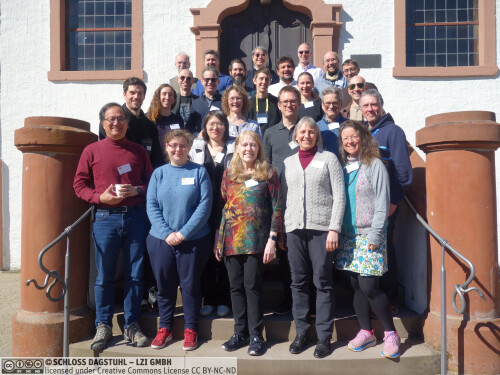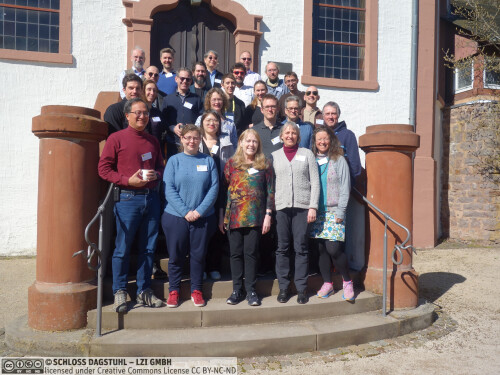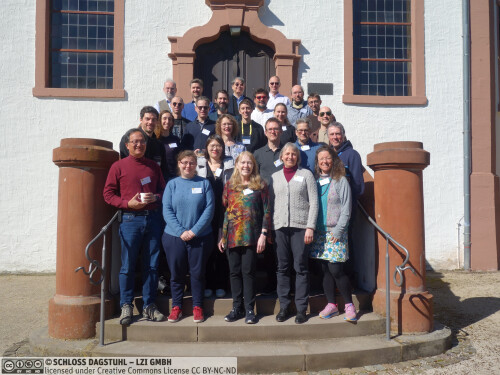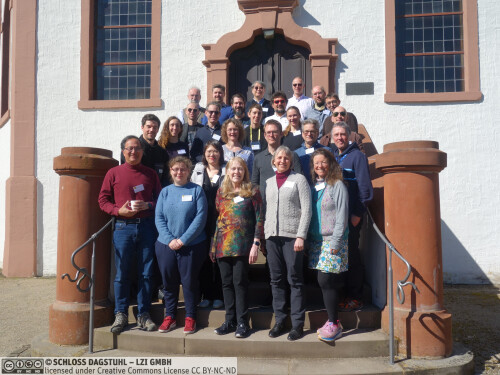Dagstuhl-Perspektiven-Workshop 25122
Climate Change: What is Computing’s Responsibility?
( 16. Mar – 19. Mar, 2025 )
Permalink
Organisatoren
- Vicki Hanson (ACM - New York, US)
- Bran Knowles (Lancaster University, GB)
Kontakt
- Marsha Kleinbauer (für wissenschaftliche Fragen)
- Christina Schwarz (für administrative Fragen)
Dagstuhl Reports
As part of the mandatory documentation, participants are asked to submit their talk abstracts, working group results, etc. for publication in our series Dagstuhl Reports via the Dagstuhl Reports Submission System.
- Upload (Use personal credentials as created in DOOR to log in)
Dagstuhl Seminar Wiki
- Dagstuhl Seminar Wiki (Use personal credentials as created in DOOR to log in)
Gemeinsame Dokumente
- Dagstuhl Materials Page (Use personal credentials as created in DOOR to log in)
This Dagstuhl Perspectives Workshop aims to provide a forum for world-leading computer scientists and expert consultants on environmental policy and sustainable transition to engage in a critical and urgent conversation about computing’s responsibilities in addressing climate change. The workshop will consider the positive and negative climate impacts of a range branches of computing, including (but not limited to): AI and Machine Learning; Software and Mechanical Engineering; Internet Architectures; Large-scale, Distributed, and Cloud-based systems; Environmental Data Science and Climate Modelling; ICT Environmental Assessment and Energy-Aware Computing; Smart Cities, Smart Grid, and Transition Engineering; Safety and Security; and Human-Computer Interaction and ICT for Sustainability.
Day 1: Tracking and reducing computing’s emissions. Attendees will deliberate on the scale of carbon reductions needed within the Information and Communications Technologies (ICT) sector, discuss technical advancements that can be deployed to rapidly reduce emissions, and consider how to develop and manage climate change compliance processes in the face of methodological challenges in measuring ICT emissions.
Day 2: Maximizing the net positive impact of computing. Discussion will focus on the ways computing can be applied to mitigate and adapt to the climate crisis, including the harnessing of digital solutions to enable emissions reductions across the wider economy, and how the societal benefits of computing (e.g. enabling of other Sustainable Development Goals) can be maximized while seriously constraining carbon emissions.
Day 3: Creating a manifesto. Each year at the United Nations Climate Change Conference (commonly known as COP) countries pledge nationally determined contributions in the fight against climate change; at this workshop we will answer the question, “What is computing’s pledge?” Together, we will produce a Dagstuhl Manifesto that outlines a strategic plan for computing to materially contribute to the meeting of climate targets and specifies mechanisms for tracking and incentivizing progress.
 Vicki Hanson and Bran Knowles
Vicki Hanson and Bran Knowles
This Dagstuhl Perspectives Workshop is enthusiastically supported by the Association for Computing Machinery (ACM), which provides independent, nonpartisan, and technology-neutral research and resources to policy leaders, stakeholders, and the public about public policy issues, drawn from the deep technical expertise of the computing community. Emerging consensus from participants will be used to inform ACM’s efforts in a way that is consistent with the imperative to address the climate crisis. ACM will cover travel and lodging costs.
 Vicki Hanson and Bran Knowles
Vicki Hanson and Bran Knowles
Please log in to DOOR to see more details.
- Christoph Becker
- Andrew A. Chien
- Benoit Combemale
- Vlad Coroama
- Koen De Bosschere
- Yi Ding
- Adrian Friday
- Boris Gamazaychikov
- Vicki Hanson
- Lynda Hardman
- Simon Hinterholzer
- Mattias Höjer
- Lynn Kaack
- Lenneke Kuijer
- Anne-Laure Ligozat
- Jan Tobias Muehlberg
- Yunmook Nah
- Thomas Olsson
- Anne-Cécile Orgerie
- Daniel Pargman
- Birgit Penzenstadler
- Chris Preist
- Tom Romanoff
- Emma Strubell
- Colin Venters
- Junhua Zhao
- Mike Berners-Lee
- Vinton G. Cerf
- Bran Knowles
Klassifikation
- Artificial Intelligence
- Human-Computer Interaction
- Software Engineering
Schlagworte
- sustainability
- climate change
- efficiency
- supply chain management
- climate modelling





 Creative Commons BY 4.0
Creative Commons BY 4.0
